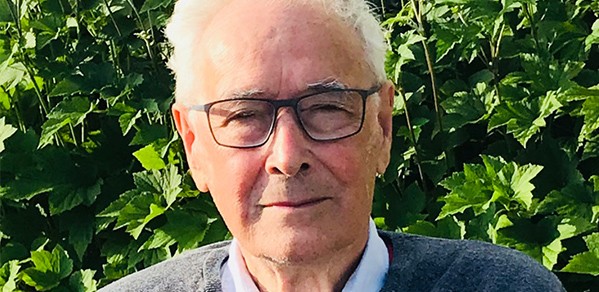
It is with great sadness that we announce that Emeritus Professor of Electromagnetism, Archie Campbell, has died.
Archie was a much-loved and highly regarded colleague and collaborator, and his loss will be felt by the entire international superconductivity community.
Professor David Cardwell
Professor Campbell had a long and distinguished career in his field, spanning more than 40 years. He pioneered the so-called ‘Campbell technique’ for investigating the penetration of flux in bulk superconductors and, together with the late Professor Jan Evetts, authored, in 1972, the subject-defining monograph Flux pinning in Type II superconductors (Adv. Phys. 21, 199, 1972).
Professor Campbell was appointed a Fellow of Christ’s College in 1966, a University Lecturer in the Department of Engineering in 1974, and also served the University as Pro-Proctor from 1985 to 1986 and then Proctor from 1986 to 1987.
Upon his retirement from the Department of Engineering in September 2007, the ‘Campbell Conference’ was held to recognise his significant contributions to studies of flux pinning in Type II superconductors, ac losses and the understanding of the critical state in superconducting materials.
In 2014, Professor Campbell was part of the Department’s Bulk Superconductivity Research Group, that set a new world record for a trapped field in a superconductor. The team, led by Professor David Cardwell, harnessed the equivalent of three tonnes of force inside a golf ball-sized sample of material that is normally as brittle as fine china.
The researchers managed to ‘trap’ a magnetic field with a strength of 17.6 Tesla – corresponding to an energy density that is roughly 350 times greater than that generated by a typical fridge magnet – in a high temperature gadolinium barium copper oxide (GdBCO) superconductor, beating the previous record by 0.4 Tesla.
In 2018, Professor Campbell was honoured with the ICMC (International Cryogenic Materials Conference) Lifetime Achievement Award in recognition of “his outstanding contributions over the last 50 years to the vortex physics, AC loss, magnetisation and materials science of both high and low Tc type II superconductors”.
Professor Cardwell said: “Archie remained an active member of the Cambridge Bulk Superconductivity Research Group and the Department since his retirement, and continued to play a key role in the development and understanding of applied superconductivity right up to his death. He was a much-loved and highly regarded colleague and collaborator, and his loss will be felt by the entire international superconductivity community.”
Read an obituary on the Christ’s College website.

